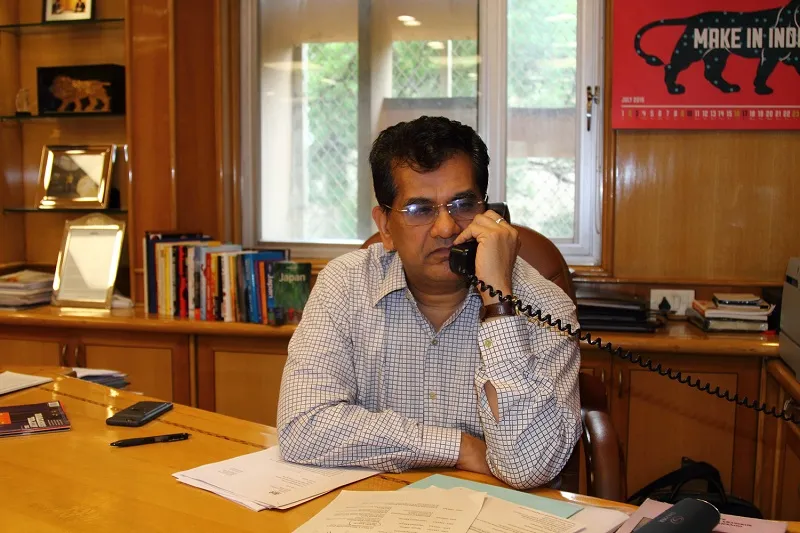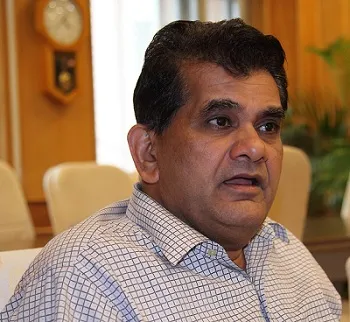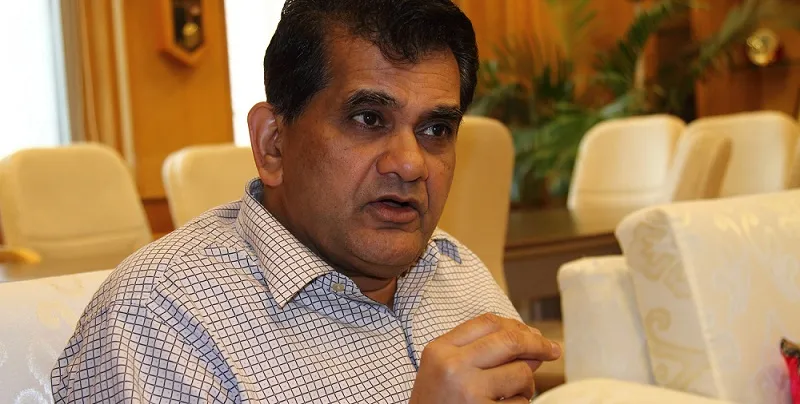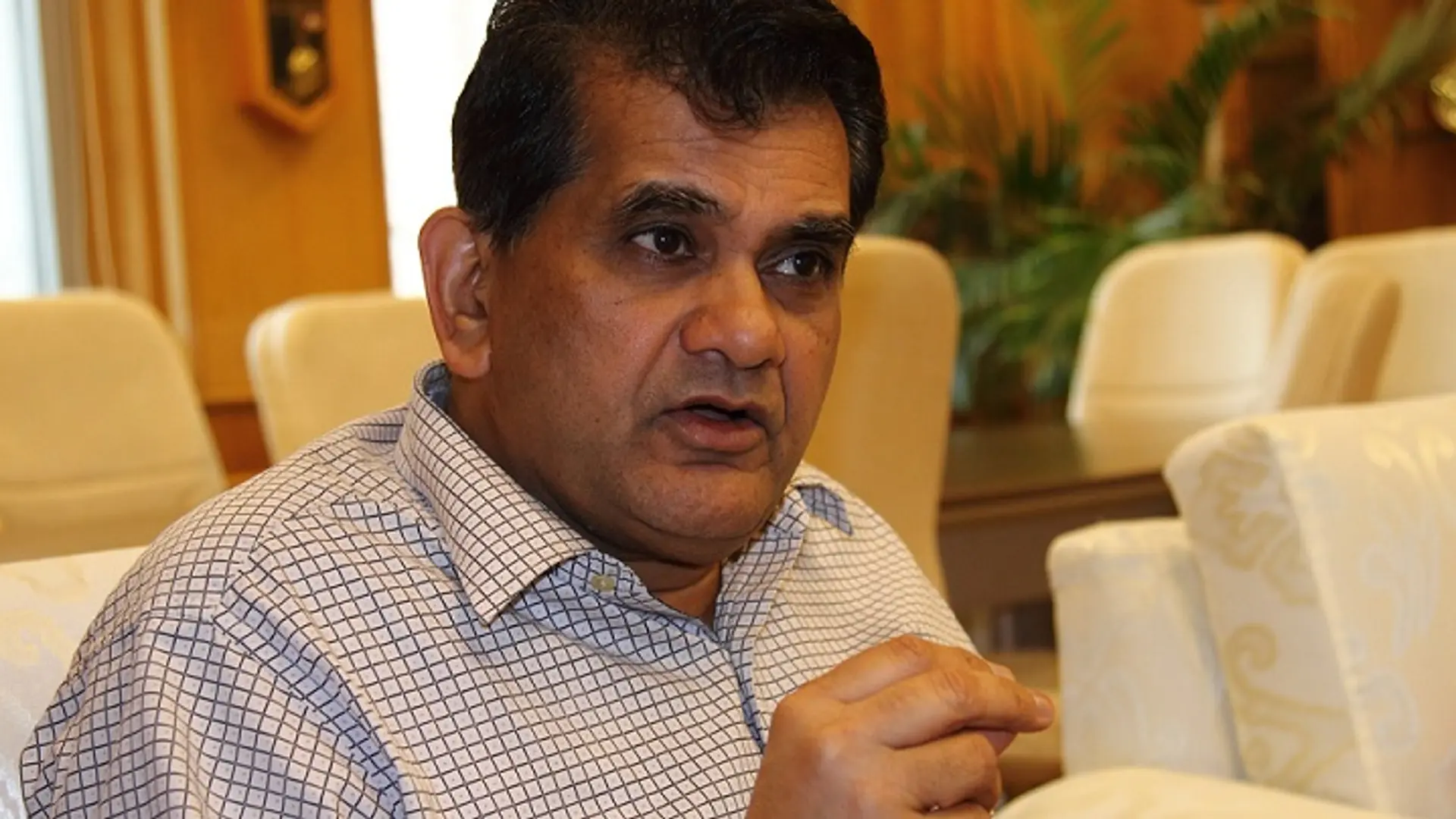NITI Aayog gets 6,000 applications for Tinkering Labs, to support 500 this year, says CEO Amitabh Kant
We believe the best way to challenge institutions is to create a sense of competition,
says Amitabh Kant, CEO of NITI Aayog when asked why a deadline has been set for receipt of applications, and grants for tinkering labs and start-up incubation centres are not on tap as Reserve Bank Governor Raghuram Rajan had proposed for bank licenses.

The deadline is 20 July and about 6,000 applications for tinkering labs have been received, says the Kerala cadre IAS officer who is known for the Incredible India tourism campaign, and, in his previous posting as secretary in the Department of Industrial Policy and Promotion, for the Make in India splash with its mnemonic logo of a lion made up of metallic gears.
Our target is to get 15,000 applications and our intention is to support 500 tinkering labs in the first year,
adds Kant who was also engaged in improving India’s ‘ease of doing business’ ranking in the World Bank’s listing of countries.
Schools with classes from the 6th to the 12th standard are eligible to apply for support for tinkering labs. If selected they get a grant of Rs 10 lakh for equipment like do-it-yourself kits and 3D printers, and Rs 10 lakh over five years for operational expenses.

Our job in this particular task is neither to bring social equity not to look at the downtrodden sections of society. We are looking at which are the most innovative schools and which will make a success out of the scheme,
asserts Kant forthrightly. The selection process, he says, captures presentation skills and the ability to find solutions to problems. Applications have been received from across the country, including the north-east. The only condition is that the schools must provide 1,500 sq ft of built-up space and faculty, who will be trained at government expense.
There is a reservation of 25 percent for government schools ─ Navodaya, Central and Sainik ─ to make it inclusive but even these will be selected on a competitive basis.
The tinkering labs and centres to incubate start-ups and support those which are already engaged in incubation are part of the Atal Innovation Mission, whose purpose is to foster creative thinking and entrepreneurship.
The Mission will pair the labs with business houses for mentoring. Kant says companies have responded with enthusiasm and mentions Bosch, Cisco and IBM as the kind of companies that have shown interest.
Kant agrees there is a dichotomy between rote learning in schools and the orientation of the labs which is to kindle curiosity and creativity and (according to the guidelines) ‘foster adaptive learning, computational thinking and a design mindset,’ Creative students may not be able to crack a system based on book learning, examinations and degree acquisition. Kant hopes the tinkering labs winnow out such students. Over time, he hopes they will be disruptive enough to force a change in the way education is imparted. Students must come to the tinkering labs at a young age, he says, and colleges must have a vast number of incubators. There is need for greater vocational training for which the constraint is trained teachers. At the higher academic level, he says, the Prime Minister had announced seven research paths for IITs and IIMs when the Start-up India action plan was announced last year.

There are 140 incubation centres in the country. The Mission intends to support 100 selected through competition. These will get Rs 10 crore (or half of the capital cost) to start with and Rs 10 cr for operational expenses over five years. The entities behind the centres will have to provide 10,000 sq ft of own or long-leased built-up space. These could be research centres, academic institutions or technology and industrial parks. They will have to provide laboratories, workshops and mentoring facilities.
About 10 incubation centres which are already catering to start-ups will be taken up for scaling up. They should have been in existence for three years and will get Rs 10 cr in two instalments on the basis of the businesses they have nurtured, the jobs created, association with academic institutions, training programmes conducted and mentors available.
Those obtaining the grants will be subject to audit by the Comproller and Auditor General. Will the auditors see failure (of start-ups) as taxpayers’ money ill-spent? Kant hopes they will look at the spirit of the Mission and not whether it has checked the right boxes.







